A couple of weeks ago I did a newsletter about Mykonos, which mentioned the dangers of overtourism, in particular the numbers of visitors now arriving there on cruise ships.
Cruise ships just get bigger and bigger, which makes the problems worse. For example, the biggest cruise ship today is Wonder of the Seas, which carries almost 7,000 people. The entire population of Mykonos is only about 10,000 people. In the earlier newsletter I gave the example of August 22nd this summer, when 15,000 cruise ship passengers will descend on Mykonos. At 8am alone, when the boats start to come in, 3,500 people will arrive on Mykonos.
They will all arrive in Mykonos Town over the course of that one day. Even if you’ve not been there, you probably know how small Greek island capitals are, and Mykonos is not a large island.
Acropolis Problems
Now this week it’s been reported that Athens, and in particular the Acropolis, is having problems due to the numbers of visitors. It’s always pleasing to see that Greece is popular with tourists, as we all know what a lovely country it is, with people who are overwhelmingly friendly. But since the pandemic, Greece has become almost too popular. It’s now the third most popular destination in the world.
Today Greece is attracting almost 30 million visitors a year, three times the country’s population. About ten years ago that figure was around 7 million, and people were delighted with so many visitors!
About 17,000 people a day visit the Acropolis, which is the most visited site in the whole of Greece, and that’s 80% more than just four years ago. The ancient site cannot cope. It simply isn’t big enough. So this week new measures were announced to try to cope with the crowds.
A time-slot system will be introduced, so the old advice about arriving before the site opens in order to beat the crowds will no longer work. In fact it doesn’t work now, as there are already long queues - including cruise ship groups - before the site opens. This has led to what’s been called ‘unruly scenes’ at the entrance.
There will also be a fast-track entrance, aimed at getting the large groups, like cruise and coach trip passengers, all in at the same time and away from the regular entrance. They also plan to introduce electronic ticketing, to speed up entry to the site.
The fact that the ticket booths and entrance are high up close to the actual Acropolis itself doesn’t help either. In hot weather people have to join long queues with very little shade, and often people don’t think to bring water or hats or umbrellas, so there have been reports of visitors fainting. One tour guide said she saw ambulances at the Acropolis at least three or four times a week. Providing discrete shade that doesn’t mar the aesthetics of the Acropolis site is another option being considered.
Some changes have already caused controversy. During the pandemic, the authorities took the opportunity provided by no crowds to concrete over the ancient marble and cobbled approach to the Acropolis to make it wider and more accessible. Critics say the new pathway has destroyed history in order to pander to modern tourists, and many more concrete pathways around the site are planned.
Now there’s talk of widening the Propylaea, the gateway to the site, to make it easier for visitors to access the buildings. Not surprisingly, this proposal has caused further outrage. The changes would take an estimated ten months to complete, though it’s likely to be ten months beset with protests.
Back on Mykonos
A story that was published in The Guardian back in March shows another aspect to the overtourism problem. It isn’t only a case of too many people crowding the streets, but in popular destinations like Mykonos, the price of property and land increases enormously, and lots of people want a slice of the action.
Greeks are notorious for ignoring building regulations - and regulations generally - but the consequence is that people start building without planning permission, and houses, hotels and restaurants get thrown up in what may have been beauty spots, or otherwise inappropriate places. It isn’t only ordinary citizens who flout the laws, but cowboys and criminals too. The result can be, as The Guardian story explains, gangland killings of the people trying to enforce the regulations.
The Solution?
We wouldn’t tell anyone who wanted to see the most popular Greek destinations, like Athens, Mykonos and Santorini, not to go to them, but if you want to get the most out of them then do a little thinking first. Don’t go in the height of summer. The mild Greek Mediterranean climate means that you can go to all three places in spring or autumn and still get good weather - and far fewer clouds. You can even go in winter, as we’ve done, and enjoy sunny days. You might have to wear a jacket or coat in the evenings but to us that’s preferable to sharing the place with 15,000 cruise ship passengers.
We’ve included Santorini as well as a survey only this week said that it was the world’s most popular European destination. Santorini gets about 2 million visitors a year, half of them day visitors from cruise ships. In 2019 cruise ship visitors were restricted to 8,000 per day, and this limit may be reduced in 2024 and 2025. If you want to see Santorini, don’t do it on a cruise ship. For a start, you only get a few hours ashore. And the other thing to consider is that with visitor numbers restricted, you may not even be allowed to go ashore if you don’t book your tour soon enough. Imagine the frustration of being moored off Santorini and able to almost touch it, but not be allowed to visit!
And Greece is a big country. If you like beaches, the mainland is full of gorgeous Blue Flag beaches. It’s also filled with archaeological sites, spectacular scenery, good food and drink, and everything else that makes a Greek holiday special.
Or get off the beaten path… and on to an unbeaten path, like one of this network of new walking paths being proposed for Central Greece. That’s our idea of how to see the real Greece - hiking in the sun from town to town, village to village, stop off for lunch in a village or a picnic lunch on the way, and arrive somewhere which welcomes not tens of thousands of visitors a day, but just a few dozen. You’ll be treated like royalty, get good value, and enjoy unforgettable evenings of great home-cooked food, and local wine.
So before booking your trip(s) to Greece this year, do some serious thinking about what you want to get out of it.
Till next time
Yammas!
Mike and Donna






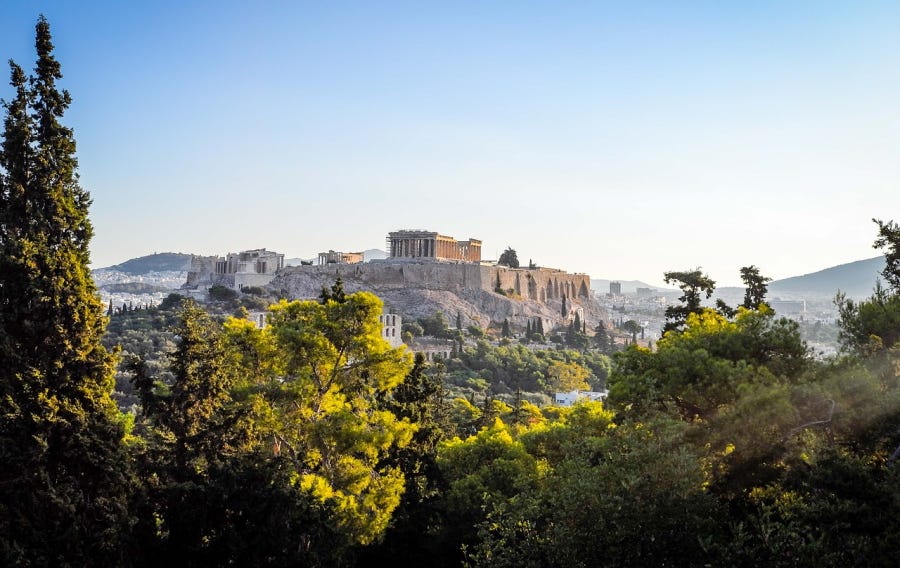
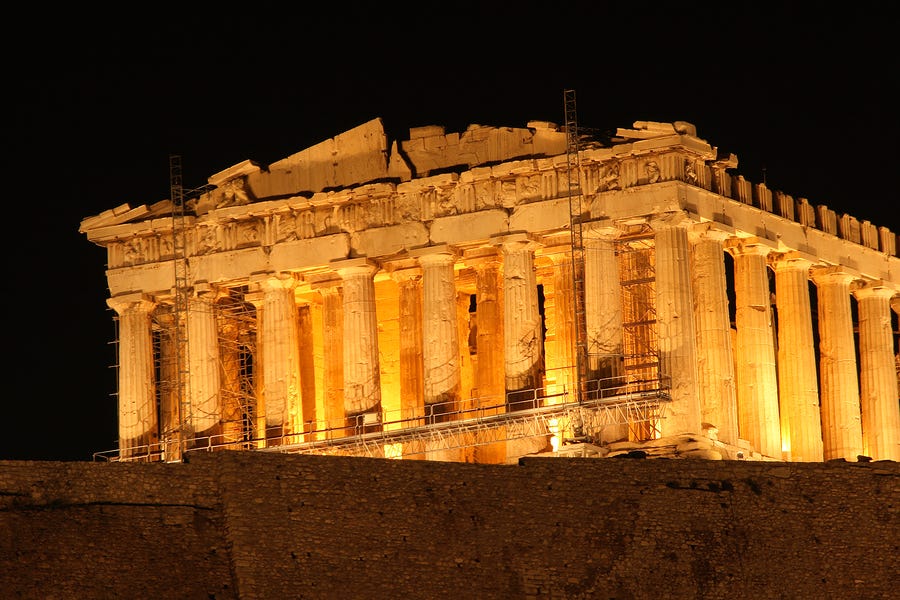
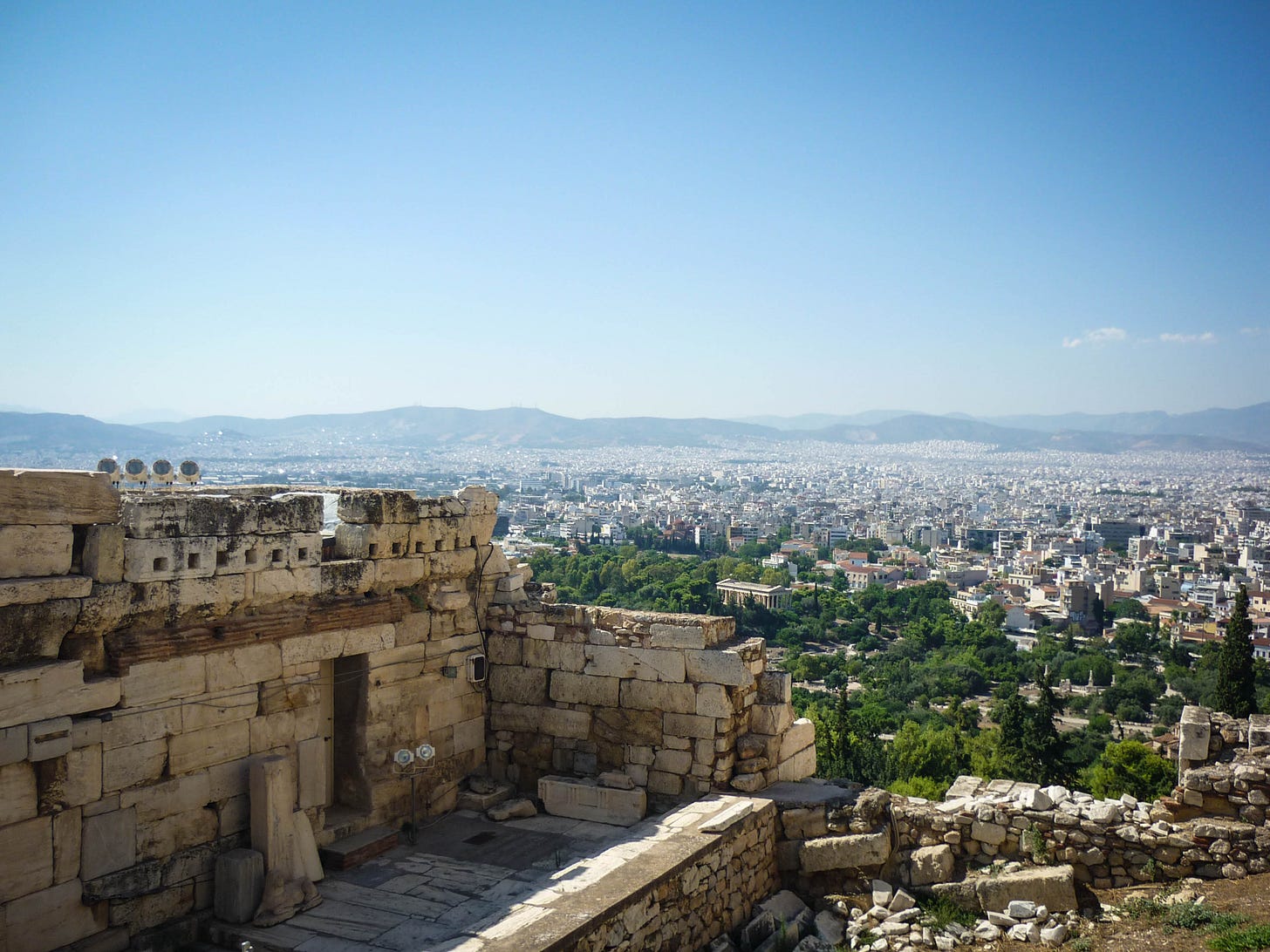
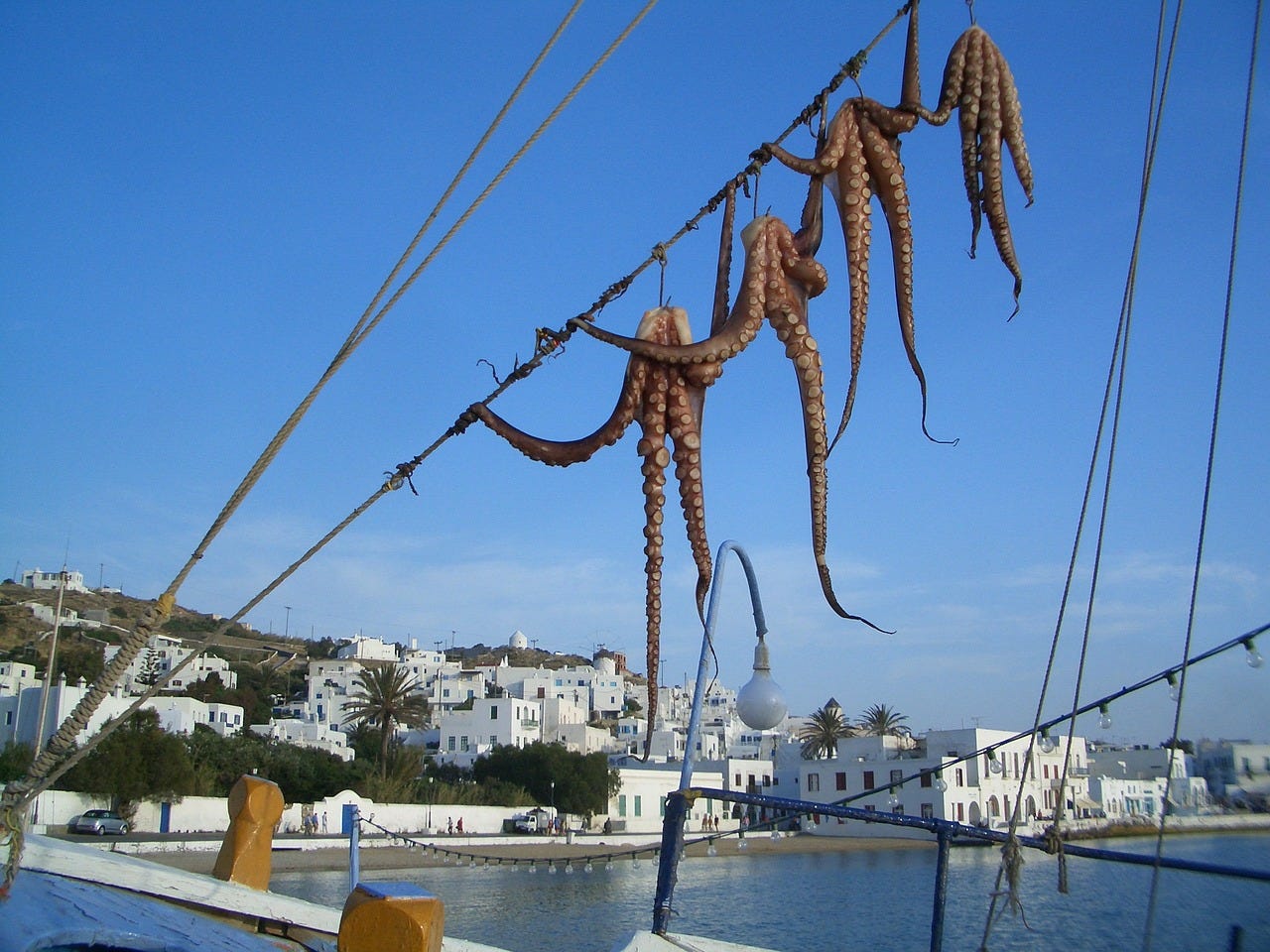
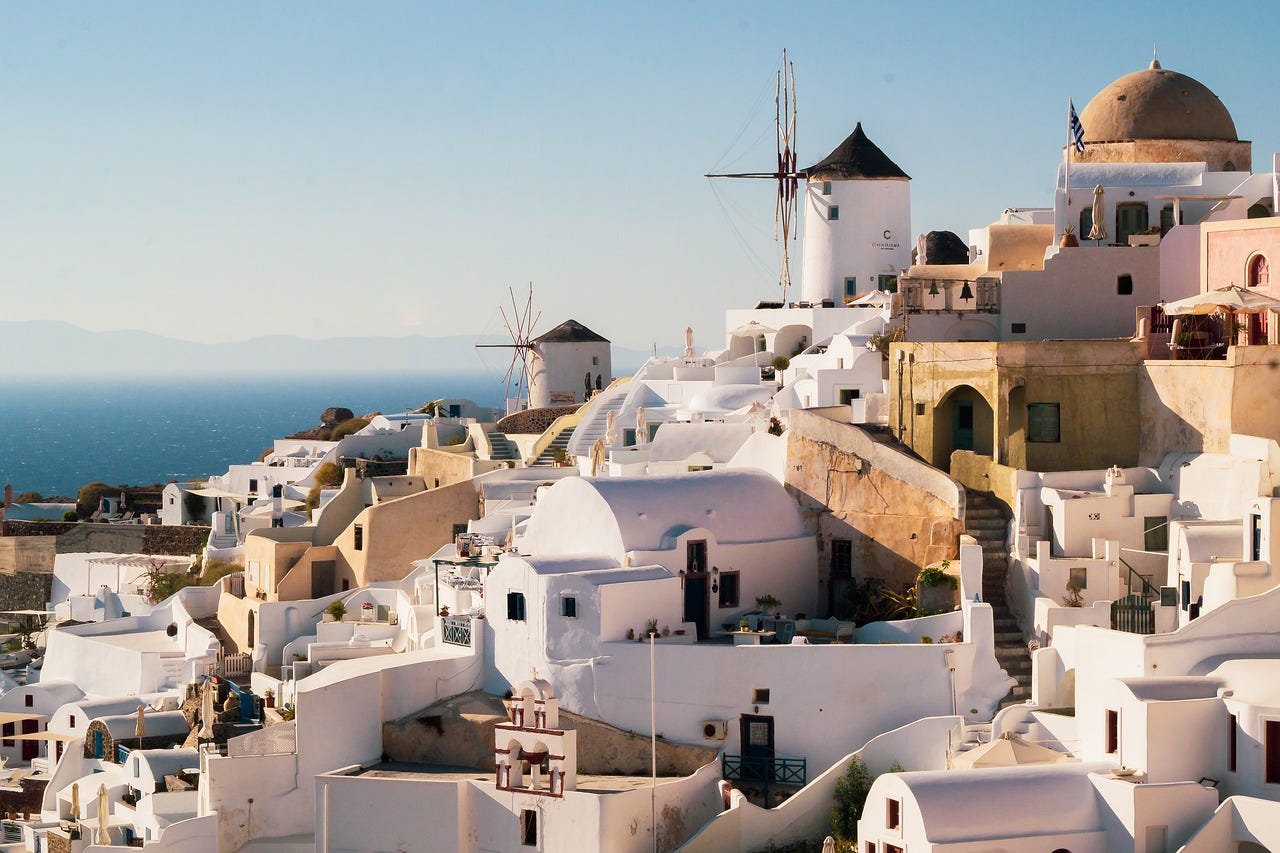
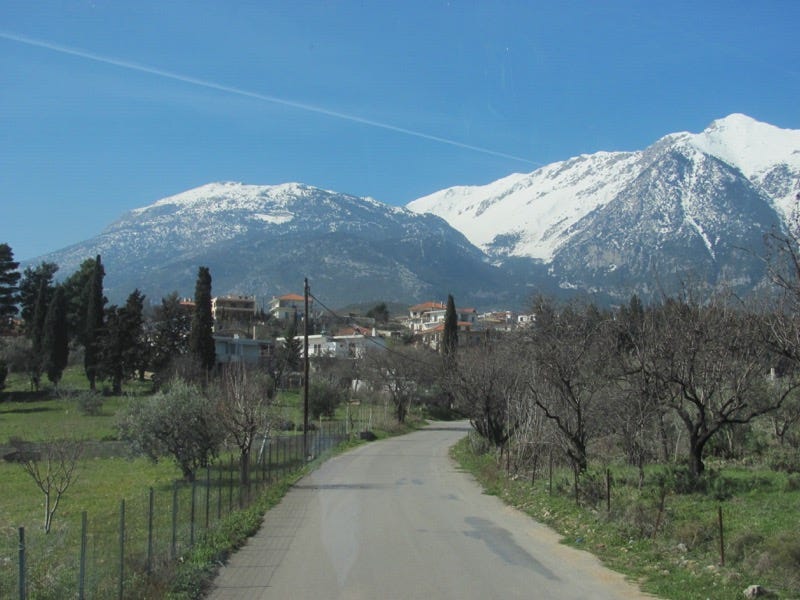
What a situation! Your overview is excellent & your solutions offered make lots of sense.